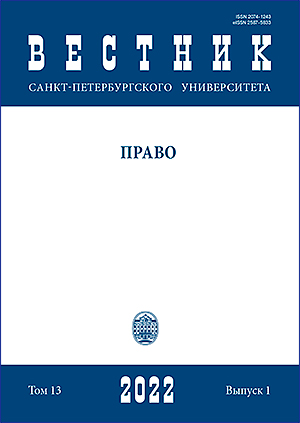Rights of convicted person in forced feeding: national and international approaches
DOI:
https://doi.org/10.21638/spbu14.2022.108Abstract
A common form of prison protests is the hunger strike. There is often a conflict between the rights of the person who refuses to eat and the obligation of the penal system to ensure the health and life of the convicted person by artificial feeding in such situations. International legal standards require medical professionals to respect the patient’s autonomy. Informed consent to medical care must be obtained prior to medical intervention. In emergency circumstances, when a person’s life or health is threatened, the doctor must act in accordance with his understanding of the patient’s interests. Artificial feeding should be carried out by appropriate means, as provided for in the General rules on medical care, and should never cause harm or humiliation. There are no detailed rules on artificial feeding in Russian legislation. In order to improve the procedure for applying forced nutrition to convicts, it is advisable to divide it into four stages, each of which has its own borders and a certain area of legal relations: making a decision to transfer the convict to a separate room; conducting basic verification actions; force-feeding the convict; taking measures for refusing to eat and committing other violations. The example of Spain clearly demonstrates how the lack of clear legal regulations led to the resolution of the issue of artificial feeding at the level of the constitutional court. The court noted that convicts who refuse to eat do not have the right to die, and not the prison administration imposed a duty to preserve health and life. At the same time, artificial feeding cannot be considered as a violation of physical and moral integrity, much less as torture, inhuman or degrading treatment.
Keywords:
rights of convicts, international legal standards, compulsory food, artificial feeding, penal legislation, Spanish law, practice of the Constitutional Court of Spain
Downloads
References
Downloads
Published
How to Cite
Issue
Section
License
Articles of "Vestnik of Saint Petersburg University. Law" are open access distributed under the terms of the License Agreement with Saint Petersburg State University, which permits to the authors unrestricted distribution and self-archiving free of charge.






